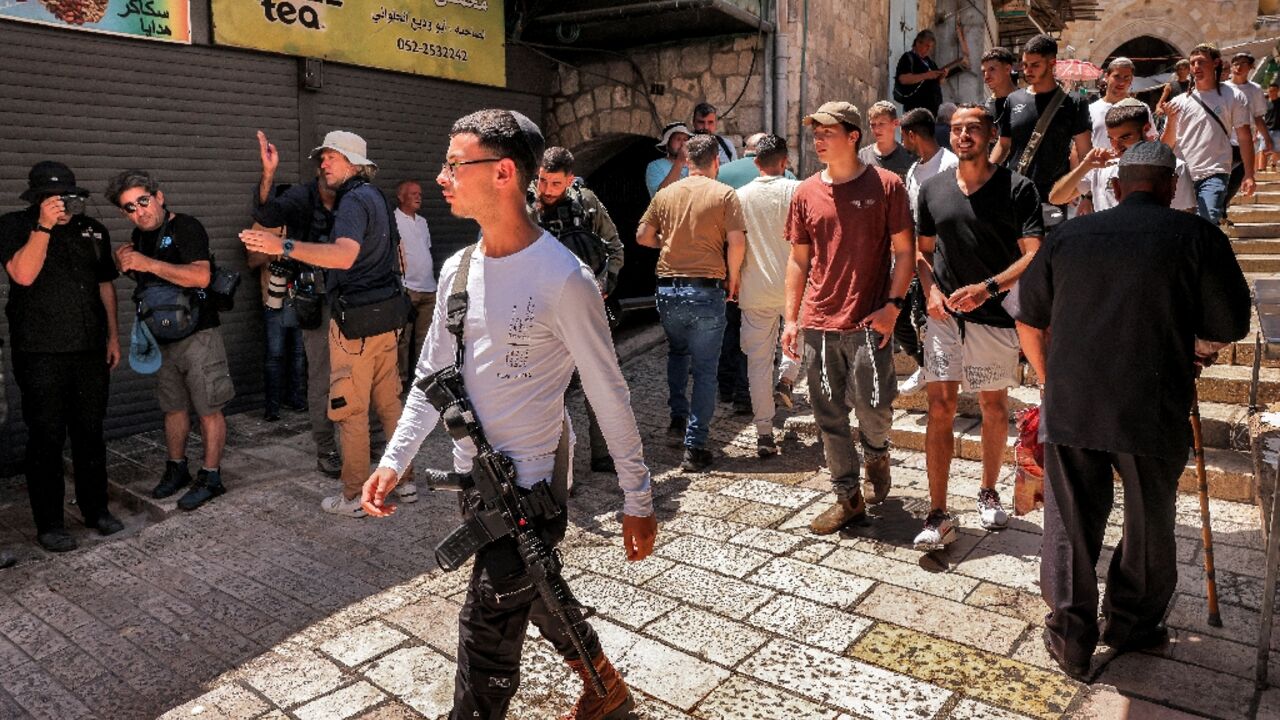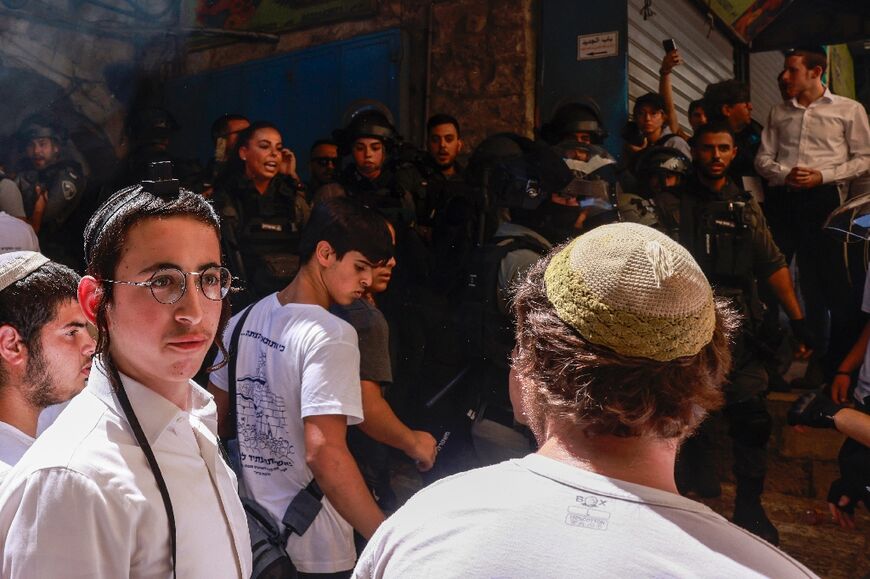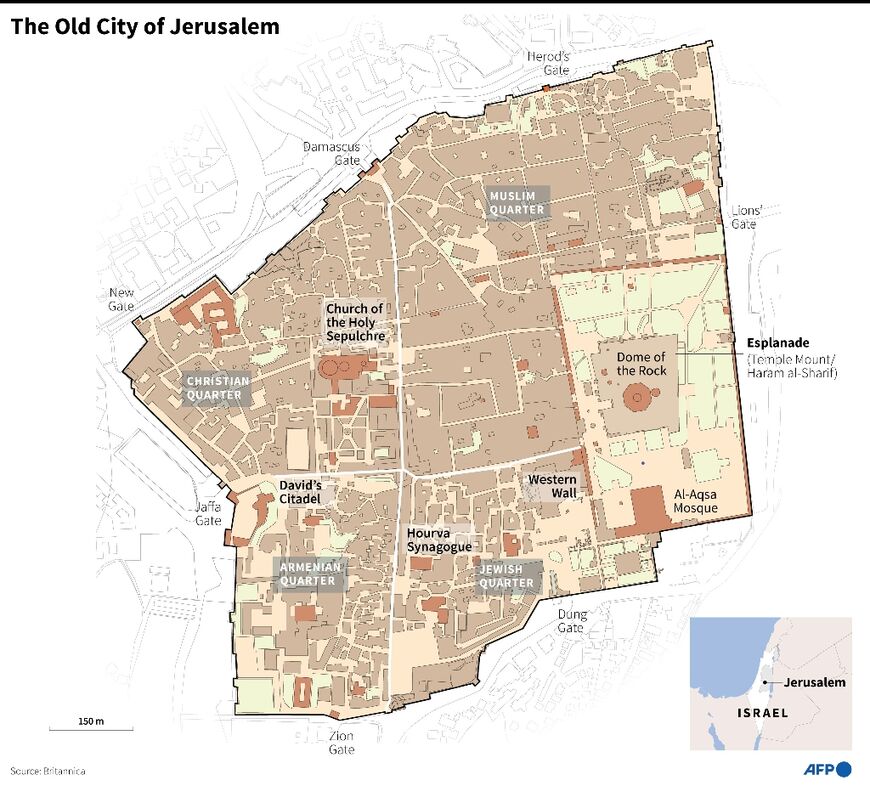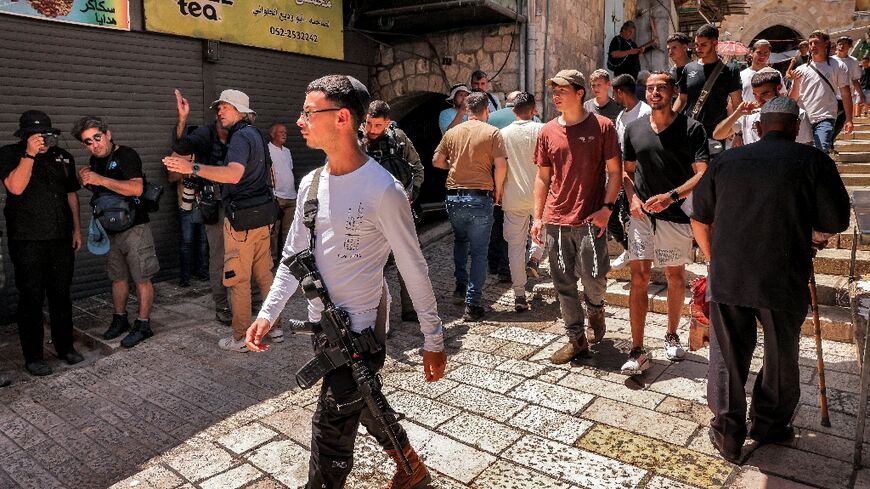Israel police deploy ahead of flashpoint Jerusalem march

Israeli police deployed in strength in annexed east Jerusalem Wednesday ahead of an annual march by Jewish nationalists that comes with tensions sky-high nearly eight months into the Gaza war.
The so-called Jerusalem Day flag march commemorates the Israeli army's capture in the 1967 Arab-Israeli war of the city's eastern sector home to the Al-Aqsa mosque compound, Islam's third holiest site, which Jews call the Temple Mount.
Thousands of mainly religious nationalists walk through predominantly Arab neighbourhoods of the Old City, waving Israeli national flags, dancing and occasionally shouting inflammatory or racist slogans.
Police set up barriers near the Damascus Gate after announcing plans to deploy more than 3,000 officers during the day, an AFP correspondent reported.
Most shops in the Old City were closed before the march started as streets slowly emptied of Palestinians and filled with young Israelis, some of whom carried weapons.
Young people waving large Israeli flags and chanting "The people of Israel live" were seen near Jaffa Gate, and some wore t-shirts reading "My land, I do not want to divide it".
Police typically force the closure of Palestinian businesses near the march route and keep Palestinian residents away.
Zaki Abu Muhammad, 52, told AFP: "I am against closing our shops while the procession passes through the Old City, but people are thinking about protecting their children."
"The city is empty," he said.
- 'Day of anger' -
For many Palestinians, the route through predominantly Arab neighbourhoods is seen as a deliberate provocation. The Palestinians claim the city's eastern sector as the capital of their future state.
A man who gave his name as Ibrahim said: "The shops must not close their doors, and they must not allow the settlers to take over the city. All Arabs must be in Jerusalem today."
Israel's far-right National Security Minister Itamar Ben Gvir said Tuesday that he and fellow marchers intended to march to the super-sensitive Al-Aqsa mosque compound, revered by Jews as the Temple Mount, where they are allowed to visit at certain times but not to pray.
"We will march tomorrow through the Damascus Gate and Jews will go onto the Temple Mount. The Temple Mount is the most important place for the state of Israel," Ben Gvir told army radio.
However police said they expected the march to end at its normal terminus, the Western Wall, the holiest place where Jews can pray.
"The march is not expected to pass through the Temple Mount or the Temple Mount gates," a police statement said.
Police said they were deploying officers throughout the city to "maintain public order, safety and secure property, as well as direct traffic" during the march.
In 2021, Hamas launched a barrage of rockets toward Jerusalem as the march began, triggering a 12-day conflict between Israel and the Palestinian militant group that also saw Jewish-Arab violence in Israeli cities.
Hamas warned Israel in a statement on Wednesday "against the consequences of continuing these criminal policies against our sanctities, at the heart of which is the blessed Al-Aqsa Mosque".
The militant group urged Palestinians "to make today, Wednesday, a day of anger".
This year's march comes nearly eight months after Hamas's October 7, 2023 attack, which resulted in the deaths of 1,194 people in Israel, mostly civilians, according to an AFP tally based on official Israeli figures.
Israel's retaliatory offensive in Gaza has killed at least 36,550 people, also mostly civilians, according to the Hamas-run territory's health ministry.
ibz-mab-lba-mca/jd/fz







